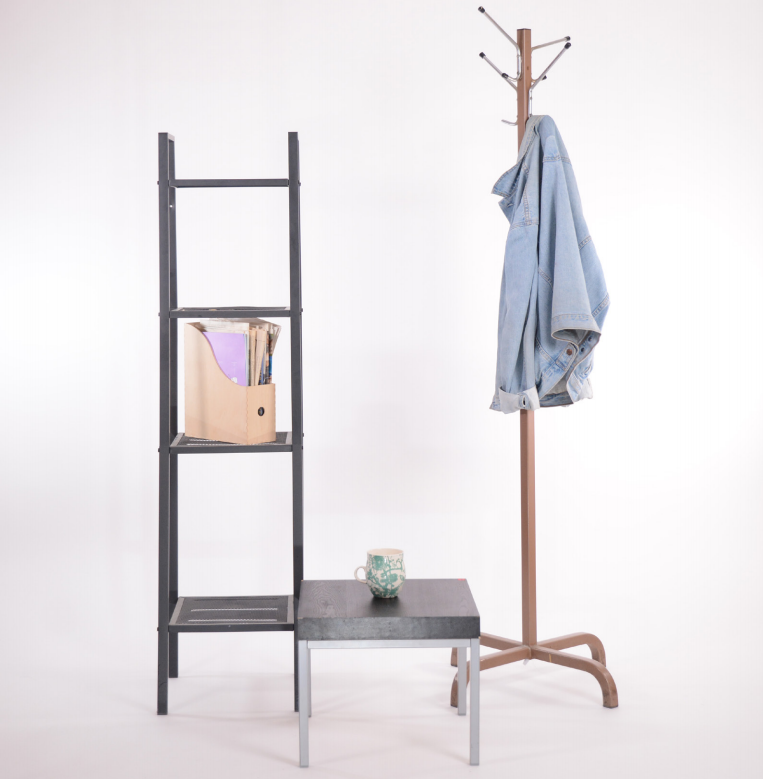[dropcap]O[/dropcap]bjects have an odd way of attracting our attention. They hold a lot of promise: they’ll make our lives easier, happier, or even give us the social status we want. Maybe that’s why consumerism is so pervasive and powerful, making it the current driver of most international economies.
Consumerism promises infinite economic growth, if only we produce more and buy more. However, an infinite growth rate does not complement a finite world, and soon enough, we will be drowning in landfills from the accumulation of discarded items that a materialistic society has deemed obsolete. Additionally, encouraging consumerism has resulted in a highly individualistic and unhealthy craving of goods, leading to a multitude of personal and societal issues ranging from depression to crime.
Why is it so difficult to shift from a consumerist mindset to one that does not emphasize material possession? Perhaps it’s because buying into the newest gadgets or the latest fashion trends is far removed from the long-term effects of excessive consumption.
But what if we can cognitively reframe ‘buying products’ from its promises of happiness and wealth into something that disrupts the flow of our lives? What if we can see the immediate benefits of not buying products today?
This is what minimalism promises. I discovered minimalism last year through a number of YouTube videos during one of my procrastination-induced decluttering sprees. I quickly learned that minimalism is a lifestyle based on living with less. It doesn’t mean that we have to leave our comfortable home and go into the wild with 10 possessions. Rather, to live minimally is to realize that more doesn’t always equal happiness. As someone who has spent most of her life as a materialist, it was quite the shift of perspective.
It was certainly hard to adopt a minimalist mindset in the beginning; unsurprisingly, some scientific research has shown that shopping is associated with release of dopamine in the brain. Shopping feels good physiologically. The challenge is to decrease our susceptibility to that.
I did a lot of research about what happens when we buy too many products, about our limited resources, about consumerism, about the life of products when they are no longer wanted, and about the consequences of cheap labour. The trick was to understand that buying a product has its own set of consequences.
Then I focused on how a decluttered space made me feel good, because of the clarity it gave my mind. After all, a clear space is a clear mind. I began to think of how much money I would save, and once I disrupted the automatic connection that I made between material possessions and happiness, I was able to really make the change for myself.
A life-changing book about decluttering space, The Life-Changing Magic of Tidying Up: The Japanese Art of Decluttering and Organizing by Marie Kondo, shows the benefits of decluttering your space, tricks to getting started, and how to maintain this space. Within its pages, a common trend emerges: keep what sparks joy. To be alright with a life of having less, we must accept that many things we possess do not necessarily serve a purpose in our lives other than collecting dust and tightening our budgets.
I let Kondo’s words influence my purchases, and I’ve become more mindful of what I bring into my space. I often ask myself two questions: ‘do I really need this?’ and ‘will owning this bring me happiness?’ The more I adopted a minimalist mindset, the less I fell into the trap of excessive consumption. I made sure that my possessions are investments that will last. I also began to think about the consequences of my purchases. What sort of businesses am I supporting when I buy this product? Was the product produced ethically?
My relationship with ‘things’ has also changed. I no longer feel compelled to own the latest trends, especially when the ones I own are still perfectly functional. Once I freed myself from the constant cycle of wanting more, I began to feel more grateful about what I currently have — and that was enough to make me happy. Fully investing in my priorities instead of unnecessary objects significantly reduced my anxiety.
Living minimally has allowed me to open up my physical and mental space to more possibilities. It opened up my budget to investing in my experiences and skills. I was able to allocate time and funds toward vocal, dance, and photography lessons and equipment, all of which are activities that foster my creativity and make me happy and fulfilled.
My new budget has also allowed me to treat myself to quality food and drinks, thereby increasing my knowledge of the best restaurants, cafés, and bars in Toronto. I think that it is so important to go out there and explore everything that the city offers.
My relationships with people also changed. Since minimalism allowed me to see my priorities much more clearly, I started to truly see how much the people in my life matter to me. I began to appreciate their time, and I felt more grateful when they chose to spend their time with me. Everyone is busy, and everyone is handling their own difficulties, but it means the world when a friend drops everything to make sure you’re okay. In a materialist world, we show our affections for our loved ones through gifts and trinkets, but reserving time for them in our busy lives is often the greatest gift we can give.
I think physical material distracts us from our lives. They have the ability to alter our priorities and make us forget the other aspects of our lives that can give us much more value. Once we limit ourselves from craving more, we can start having the freedom to experience life as it should be experienced: simply.
